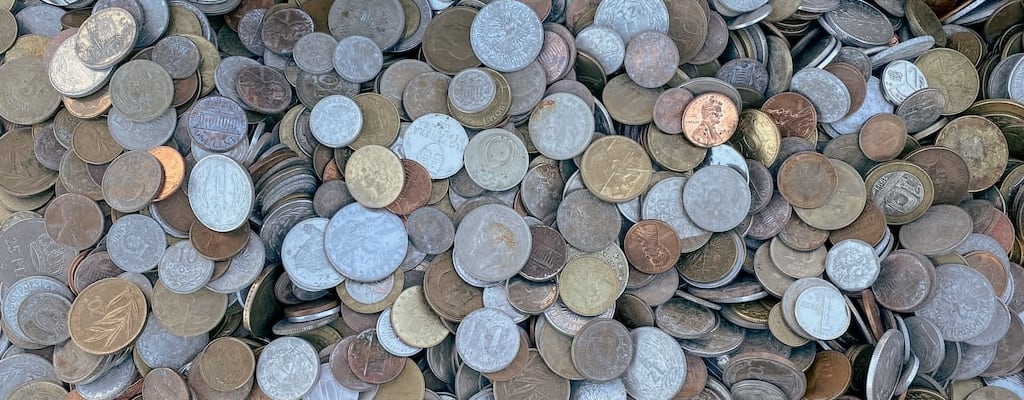not worth a dime: Idiom Meaning and Origin
What does ‘not worth a dime’ mean?
The idiom "not worth a dime" means something or someone does not have any value or is not valuable. It suggests that the thing or person is not worth even a small amount of money.

Idiom Explorer
The idiom "worth one's weight in gold" means that someone or something is extremely valuable or precious.
The idiom "on someone's dime" means that someone is paying for something on another person's behalf, usually referring to expenses or costs. It implies that someone else is covering the expenses, taking responsibility for the payment.
The idiom "not worth writing home about" means something is not impressive or noteworthy enough to share with others. It suggests a lack of excitement or satisfaction about a particular experience or event.
The idiom "not worth salt" means something or someone is of no value or insignificant. It originates from ancient Rome where salt was highly valued as a valuable commodity used for trade and payment.
The idiom "not worth a whistle" means something is completely worthless or of no value at all.
The idiom "not worth a plug nickel" means something has little or no value. The phrase "plug nickel" refers to a coin that is worthless or has no purchasing power.
The idiom "not worth a Continental" means something is completely valueless or worthless. It originated during the American Revolutionary War when the Continental Congress issued Continentals as currency, which quickly became worthless due to hyperinflation.
"Not worth a brass farthing" is an idiom that means something is completely worthless or of no value at all.
The idiom "not much of anything" means a lack of substance, value, or importance. It implies that there is very little or almost nothing in terms of quantity, quality, or significance.
The idiom "not likely" means something is improbable or unlikely to happen.
The Meaning
The idiom "not worth a whistle" is another expression in the English language that conveys a similar meaning to "not worth a dime." It implies that something or someone has little or no value or importance. The use of "whistle" in this idiom adds a touch of whimsy, creating a playful tone while still emphasizing the lack of worth.
The phrase "dime's worth" is a variation of "not worth a dime" that highlights the minimal value of something. By using the possessive form of "dime," it emphasizes that the item or concept being referred to is not even worth the value of a dime, which is a small sum of money.
Similarly, the idiom "not worth a plug nickel" is used to convey the idea that something or someone has no value or worth. The phrase "plug nickel" refers to a coin that is worth less than its face value. By combining "not worth" with "plug nickel," the idiom effectively communicates a complete lack of value.
In the idiom "not worth a brass farthing," the term "brass farthing" refers to a coin of little value. The phrase, like "not worth a dime," utilizes a specific coin to represent minimal worth. The use of "brass" further emphasizes the lack of value, as it is a less valuable metal compared to the silver or gold historically used in coins.
The idiom "not worth salt" is yet another expression that conveys a lack of value or worth. It draws its origins from ancient times when salt was a valuable commodity, often used as currency or as a means of trade. By suggesting that something or someone is not worth salt, the idiom underscores the perceived insignificance or worthlessness of the subject in question.
The idiom "not worth a dime" is a common expression in the English language that conveys a lack of value or importance. It aligns with other idioms such as "not worth a whistle," "dime's worth," "not worth a plug nickel," "not worth a brass farthing," and "not worth salt." Each of these idioms utilizes different coins, materials, or objects to emphasize the minimal worth or significance of something. These idioms have become ingrained in our language and culture, offering concise and evocative ways to express the concept of worthlessness or insignificance.
Example usage
Examples of how the idiom "not worth a dime" can be used in a sentence:
- After the company's poor financial performance, their shares were not worth a dime.
- The old hat that I found at the thrift store is not worth a dime.
- He claimed that the advice his friend gave him was not worth a dime.
More "Value" idioms



